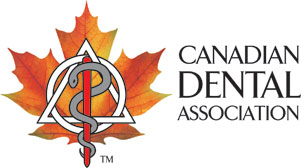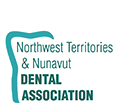Dentistry is one of the most rewarding professions to pursue. Through education, diagnosis and treatment, dentists provide the public with an essential health service. Research is continuing to show that the link between oral health and general health is strong.
Before applying to dental school, you must determine whether it is the right career choice for you, what the educational and training requirements are and what opportunities a dental degree can offer you beyond the scope of general practice.
What you may not realize is that dentistry is an artistic as well as scientific profession.
Ask yourself these questions:
- Do you enjoy interacting with and helping people?
- Would you like a career that offers challenge and variety?
- Would you enjoy being self-employed?
- Are you interested in helping people maintain and improve their oral health?
- Do you have good manual dexterity and spatial judgement?
- Do you have keen memory and a strong interest and ability in science?
The scope of a dentist's work is much broader today than ever before. Dentists are oral health experts. They have the skills, training and expertise to know how the health of your teeth, gums and mouth relate to your general health.
Today's dentists do more than drill and fill patients' teeth; they perform a wide variety of procedures and functions. Though some dentists specialize or develop expertise in particular areas, the number and range of services that dentists provide has steadily grown.
The typical dentist is involved in:
-
Prevention/Public Education: dentists educate their patients, as well as the general public, on how to prevent oral health problems. As primary health care providers, they provide nutritional guidance, as well as information and advice on developing and maintaining good overall health.
-
Detection and Management of Oral Conditions: Research shows there may be a link between oral disease and other health problems such as diabetes, heart disease and stroke, as well as pre-term and low-birth-weight babies. Dentists are often the first health care professionals to spot a wide variety of systemic diseases such as hypertension and cancer.
-
Aesthetic Improvement: Dentists can help improve a patient's appearance as well as health through the use of newly developed cosmetic dental techniques.
-
Restoration: Dentists repair damage to the teeth, gum and oral tissues caused by accidents or diseases such as dental caries (tooth decay) and periodontitis (gum disease)
-
Correction: Dentists correct oral health problems caused by crooked, crowded or poorly spaced teeth or misaligned jaws with orthodontic appliances, mouth splints and other devices and treatments.
-
Reconstruction: Dentists fabricate substitutes for lost teeth and oral tissues, including fixed replacements and dentures.
-
Surgery: Dentists perform many kinds of oral surgery other than tooth extractions. They also perform surgery to correct facial and dental deformities caused by accident and birth defects.
Dentists treat and interact closely with people of all ages and personalities. Each patient has unique problems and concerns, so the dentist develops and carries out unique treatment plans for each individual. As a result, the dentist's typical day is diverse and interesting.
Creativity: Stretch your mind
The practice of dentistry involves a strong artistic element. Much of dentistry is a detailed craft involving careful, precise handwork. Whether the task is to brighten one tooth or realign an entire jaw, dentists must have an artist's aesthetic sense and technical ability to produce the best possible results.
Dentists rely on intelligence and experience to determine what is best for all patients. Dentists constantly make creative decisions in the development and implementation of treatment plans for their patients. They must consider a number of complex factors before they can make these decisions.
Prestige: Find, and open, new doors
Because dentists provide an essential health care service, they occupy a highly respected position within the community. A patient's oral welfare, and much of their total well-being, is in the dentist's hands.
Because they are skilled, conscientious professionals, dentists earn the respect and appreciation of their patients and fellow citizens. They have opportunities to work as community leaders, educators, physicians and government officials.
Flexibility: Not necessarily 9 to 5
Dentistry, perhaps more than any other branch of medicine, offers professional flexibility. Most dentists enjoy independence and the flexibility that goes along with the independence, by establishing private practices on their own or in a group. Private practitioners can work either full-time or part-time and have the freedom to choose their own hours. Thus, they can easily structure their personal and professional lives according to their individual needs and desires.
In addition to solo and group practices, dentistry provides opportunities to work in a variety of other avenues: city, provincial and federal government agencies, such as public health departments; community non-profit and educational agencies; research programs sponsored by universities, foundations and corporations and armed forces programs.
Security: A growing need for dental care
Income is an important consideration in selecting a career. Traditionally, dentists have earned a more than adequate income. In fact, dentistry can provide considerable financial security.
Dentistry is an evolving profession. The need for professional dental services will remain strong in the years ahead, even though changing patterns in dental disease will affect the nature of dental practice. Thanks to fluoride and improved dental techniques, tooth decay is declining, especially among children and teens. However, periodontal disease continues as a serious threat, affecting three out of four adults.
Tomorrow's dentists will meet public oral health needs with advanced techniques, including vaccines that fight tooth decay, new anxiety-relieving methods and sophisticated materials and procedures to enhance appearance.
At the same time, the population is living longer and more people will keep their own teeth longer, so the demand for preventive and restorative services will increase, while the need for extractions and "false teeth" will decrease.
Personal Satisfaction: Producing lasting results equals happy patients
One of the most notable benefits of a career in dentistry is personal fulfillment. Dentists perform an important public service while helping people look and feel healthier and more attractive.
What Dentists Do
Dentists provide many services, including:
- Health Care: Dentists are an important part of the health care team, frequently making referrals to - and receiving referrals from - physicians, psychologists and other health care professionals. In recent years, the average dentist has provided oral health care to 1,000 different patients each year with an average of 63 patient visits each week.
-
Education: Dentists teach patients and the general public about the importance of regular dental exams and good oral hygiene. They inform patients of potential threats to their oral health, such as the use of tobacco products, and advise them on how to improve their oral and overall health through good nutrition and stress management.
Some dentists also educate the public through community speaking engagements, newspaper and magazines articles, or television and radio interviews.
- Teaching and Research: Dentists may be full- or part-time faculty members at dental schools involved in teaching and training of dental professionals. They also conduct oral health research in university and corporate settings. Research projects investigate everything from the development of new bone substitutes, to applications for time-release fluoride pellets, to new methods of alleviating patient fear about dental treatment.
- Professional Development: With the increasing amount of information being generated by dental research, dentists must continually update their knowledge and skills. The profession offers many opportunities for ongoing learning and professional growth through continuing education courses and seminars.
- Leadership: Dentists develop and exercise leadership and interpersonal skills. They supervise and manage the care provided by other dental team members, including dental hygienists, dental assistants, laboratory technicians and receptionists. In group practices, dentists work with and may employ and supervise other dentists.
- Artistry: Dentists make creative decisions to produce beauty and order in the mouth. To do so, they must select appropriate procedures and materials and have a fine eye for detail.
- Executive Management: As solo practitioners or partners, dentists usually manage the business and financial aspects of their practices. They acquire and use practice management and investment skills, and develop marketing strategies in order to attract and keep patients. Dentists take advantage of modern computer technology to manage and streamline the business aspects of their practices.
- Community Service: Dentists occasionally use their knowledge to assist in criminal and legal investigations and may even provide evidence in court trials. Experts in forensic dentistry can also help identify victims of mass disasters when fingerprints are not available.
- Specialize: Most dental school graduates become general practitioners, providing comprehensive oral health care to a wide variety of patients. However, dental school graduates who enter into a dental specialty program specialize exclusively on a specific form of dental care.
The more you know about the practice of dentistry, the more certain you can be about your decision. If you would like to learn more about pursuing a career in dentistry, talk to dentists in your community and/or ask to visit a dental office. The dental society in your area, or a local dental school, may also be able to direct you to other sources of information.











